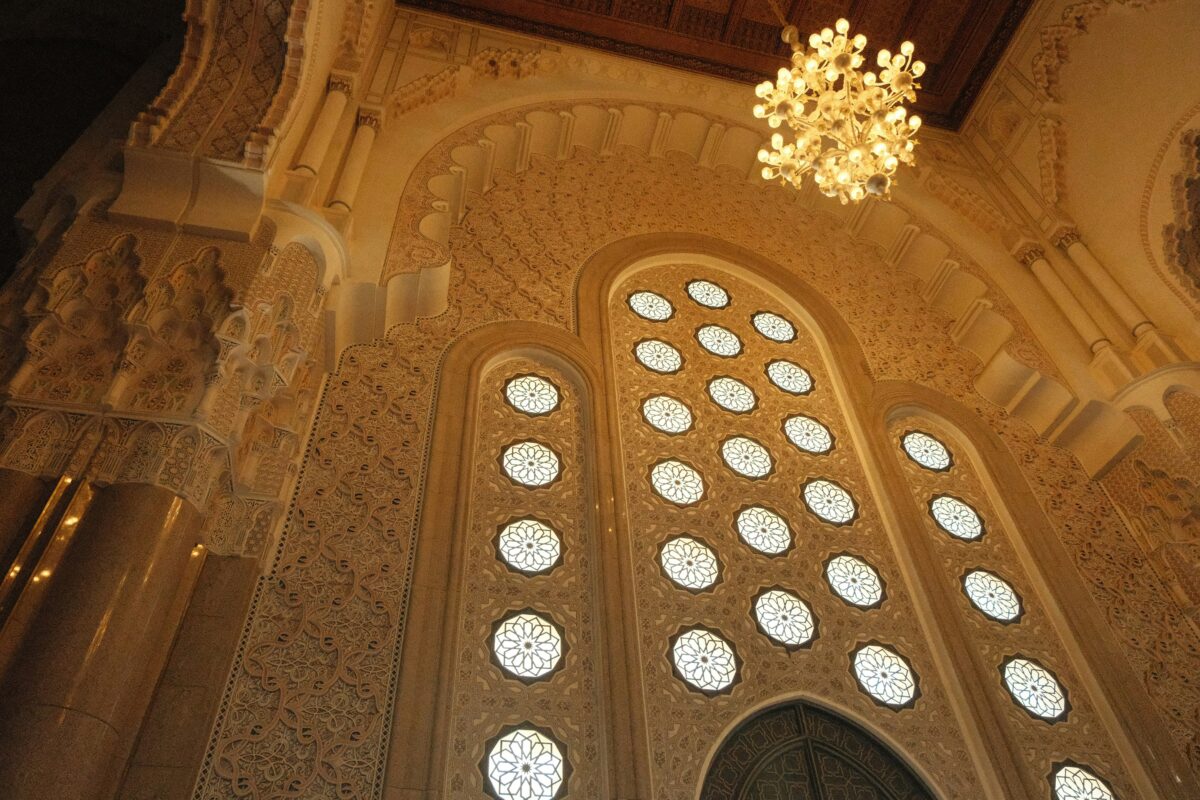Guidance regarding basic Islamic issues – which Hazrat Amirul Momineen, Khalifatul Masih Vaa has given on various occasions in his written correspondence and during MTA programmes – is being officially published below for everyone’s benefit.

Differences between Hinduism and Buddhism
A lady from the USA wrote to Hazrat Amirul Momineen, Khalifatul Masih Vaa and asked what the difference was between Hinduism and Buddhism.
Huzoor-e-Anwaraa, in his letter dated 31 October 2022, provided the following answer to this question:
“Islam, as the final and universal religion for all of humanity, enjoys the divine promise of preservation till the end of times.
“Prior to this, at various epochs and locales across the globe, Allah the Exalted sent His prophets and elect to shepherd mankind. Those faiths were tailored only to the specific needs of their times and territories. As time progressed and the followers of a religion introduced distortions into its core teachings, straying from the righteous path, Allah, in His boundless mercy, would either send another chosen one to rejuvenate the very same faith or establish a new religion. It is therefore our belief that 124,000 prophets were ordained in the world.
“Hinduism and Buddhism are relics of these erstwhile religions, now perceived as distinct entities with divergent tenets. Originally, however, they branched from the same religious tree. Historical evidence confirms that Buddhism was established by Allah the Exalted around 500 BCE to reform Hinduism. Hazrat Buddhaas, born into a Hindu household, was divinely inspired to rectify the adulterations infiltrated into the original Hindu teachings within the Vedas. He propagated a doctrine of compassion as an antidote to the undue harshness that had infiltrated Hinduism, instilled in his followers the tenet of monotheism [Tawhid] and called them to the One God.
“Moreover, Hazrat Buddha’sas canon and prophecies foretold the emergence of a new ‘Buddha’, half a millennium post-Buddhism, a prophecy realised with the advent of Prophet Jesusas.
“To gain an in-depth comprehension of these faiths, one is advised to explore the scholarly works written about them. In parallel, the Promised Messiahas has extensively deliberated upon Buddhism and Hinduism in his oeuvre. His treatise, ‘Jesus in India’, for Buddhism, and works like ‘Surmah-e-Chashm-e-Arya’, ‘Arya Dharam’, ‘Sanatan Dharam’, ‘Chashma-e-Ma‘rifat’, ‘Naseem-e-Da‘wat’, among others, offer detailed expositions on Hinduism. You should study them.”

Announcement for things lost in a mosque
A missionary from the UK enquired from Hazrat Amirul Momineen, Khalifatul Masih Vaa, “If an item is lost in the mosque or someone forgets their belongings in the ablution area and it is found by another person, can an announcement for such lost items be made in the mosque?”
Huzoor-e-Anwaraa, in his letter dated 30 November 2022, provided the following answer to this question:
“Announcing lost items within the mosque precincts stands prohibited. Such acts were profoundly frowned upon by the Holy Prophetsa. As narrated in Sahih Muslim, ‘Allah’s Messengersa articulated, ‘If one hears an individual crying out in the mosque about something they have lost, one ought to respond: ‘May Allah not return it to you.’ This is so because mosques are not erected for such purposes.’’ (Sahih Muslim, Kitab al-masajidi wa mawadi’ s-salah, Bab an-nahyi ‘an nashdi d-dallati fi l-masjidi wa ma yaquluhu man sami‘a n-nashid, Hadith 568a)
“Further expounding on the injunction against such announcements within mosques, Hazrat Musleh-e-Maudra remarked:
“‘An in-depth contemplation of Islam, particularly the epoch of the early Muslims, unveils that mosques were not solely consecrated for the formal remembrance of God; they also served as venues for addressing and resolving certain [seemingly] ‘worldly’ matters. Observations from the assemblies convened by the Holy Prophetsa reveal that strategic decisions, judicial deliberations, and educational activities were conducted within these sacred confines. This shows that mosques are not solely for the formal remembrance of God; other tasks that are necessary for the nation are also permitted, albeit with a strict prohibition against personal announcements like those for lost items. The Holy Prophetsa explicitly discouraged the practice of announcing lost belongings within the mosque, stating that those who do so should not expect divine blessings for such items. This delineates a clear boundary: while mosques may facilitate discussions on military strategies, education, and legal matters, announcements concerning personal losses are strictly forbidden. This delineation underscores the principle that activities within mosques should serve communal or national interests, not personal ones. In other words, mosques are communal spaces where collective and national tasks can be carried out, provided they are beneficial to the nation and virtuous. Essentially, any activity that contributes to the welfare of the community or the nation, and is inherently virtuous, is regarded as an act akin to remembering Allah.’ (Friday Sermon, 29 August 1952, Daily Al Fazl, Lahore, 11 September 1952, p. 2)
“In light of these directives, it is unequivocally clear that personal announcements regarding lost items contravene the sanctity of mosques, given their non-communal nature. Exceptions are made in cases of lost or found children, owing to the gravity and life-threatening implications, thus qualifying as matters of communal concern and virtue.
“Nonetheless, the provision of a notice board at the mosque’s exterior gate for disseminating information about lost or found items does not breach this protocol, a stance that is also corroborated by certain classical jurists.”

Bulugh: age of puberty, maturity and adulthood for marriage in Islam
A missionary from Nepal wrote to Hazrat Amirul Momineen, Khalifatul Masih Vaa, inquiring, “According to Islam, at what age does a girl reach puberty, and what age has Islam set for marriage?”
Huzoor-e-Anwaraa, in his letter dated 20 November 2022, provided the following answer to this question:
“The Holy Quran and the Hadith do not specify a fixed age for matrimony for either gender. Islam rather advocates for marriages to be considered in light of the regional environment and the physical maturity of the individuals involved. Nonetheless, the onset of puberty [bulugh], usually signified by menstruation in females and nocturnal emissions in males, marks the age at which marriage becomes permissible.
“Post puberty, marriage can be solemnised at any suitable time, allowing each society and individual family to determine the appropriate age for their progeny to marry, based on their unique circumstances and environment, ensuring no undue delays or negligence. As narrated in Shu‘ab al-Iman on the authority of Hazrat Abdullah ibn ‘Abbasra, the Holy Prophetsa instructed that those blessed with children by Allah should give them a good name, provide them with a good upbringing, and teach them manners. Then, when they reach the age of puberty, they should arrange their marriage. If, after reaching puberty, the father (due to his negligence and carelessness) does not arrange for their marriage and they fall into sin because of it, he will be responsible for that sin. (Shu‘ab al-Iman, al-Bayhaqi, Bab as-sittun wa huwa fi huquqi l-awladi wa l-ahlin, Vol. 18, p. 182, Hadith: 8413)
“This hadith does not imply an immediate obligation for marriage upon reaching puberty but rather emphasises the importance of not unduly delaying marriage once the individual is deemed capable of shouldering marital responsibilities.
“In 1929, in relation to the proposed Sarda Act [i.e., Child Marriage Restraint Act] by the Government of India, Hazrat Musleh-e-Maudra, while answering a question regarding the Quranic verse وَاَنۡکِحُوا الۡاَيَامٰي مِنۡکُمۡ وَالصّٰلِحِيۡنَ مِنۡ عِبَادِکُمۡ وَاِمَآئِکُمۡ [i.e., ‘Arrange the marriages of widows from among you, and of the righteous from among those under your control, male and female.’ (Surah an-Nur, Ch.24, V.33)], stated:
“‘The verse does not mean that marriage should be immediately arranged as soon as they acquire capability. Rather, it means that, after becoming capable, they should not remain unmarried without reason.
“‘This [Sarda] Act does not completely prohibit marriage. It would only be prohibitive if it declared marriage itself forbidden. The proponents of this law contend that ‘capability’ from their perspective encompasses qualities conducive to the nation’s civil advancement and the well-being of future progeny, with medical consensus placing such maturity at the age of 21. [They say that] given the nation’s unreadiness to uphold such prolonged periods of celibacy among their progeny, thresholds of fourteen and eighteen years were established and that it is anticipated that as societal tolerance evolves, so too will the legal age for marriage. Their argument hinges on the notion that what is commonly perceived as ‘capability’ merely represents the preliminary signs thereof, aligning with our assertion that marriage be reserved for a time when true maturity has been reached.’ (Al Fazl, Qadian, 17 December 1929, p. 6)
“Although this statement was made in the context of the Sarda Act, Hazrat Musleh-e-Maudra did not repudiate the rationale provided by the law’s architects; rather, he endorsed their viewpoint. He further asserted on a different occasion:
“‘Principally, we advocate for the idea that girls should be permitted to marry at an age where they can discern their own welfare and detriment, adhering to the Islamic directive that marriage should be consensual. Until a woman attains an age at which she is capable of discerning her own welfare and detriment, any consent provided prior to this is utterly illusory. On the other hand, [although local or national laws of various countries that Muslims are duty bound to obey may deem it illegal], our religion permits, in cases of extreme necessity, the formal betrothal of a girl at a young age. However, in such instances, the girl reserves the right to reject the marriage upon reaching maturity, seeking annulment through legal channels if necessary.’ (Al Fazl, Qadian, 22 October 1929, p. 1)
“The Promised Messiahas, while explaining the Quranic verse وَلَا تُؤۡتُوا السُّفَہَآءَ اَمۡوَالَکُمُ الَّتِيۡ جَعَلَ اللّٰہُ لَکُمۡ قِيٰمًا [i.e., ‘Hand not over to those of immature mind your property, which Allah has made a means of support for you.’ (Surah an-Nisa’, Ch.4, V.6)], stated:
“‘That is, should there be among you a person of property who is an orphan or minor and it is apprehended that he would waste his property through his lack of sense, you should take charge of his property as a custodian and should not hand it over to him, inasmuch as the whole system of commerce and social security depends upon proper care of property. Out of the income of the property, you should provide for the maintenance of its owner and you should instruct him in all equitable values that would help to develop his reason and understanding and would furnish him with proper training so that he should not remain ignorant and inexperienced. If he is the son of a merchant, he may be instructed in the ways of business and commerce, and if his father followed some profession or other occupation, he may be given training in some appropriate occupation. Test him from time to time to see if he is making progress in his training. When he arrives at the age of maturity, that is to say about 18 years, and you perceive that he has developed enough intelligence to look after his property, hand over his property to him. Do not deal with his property wastefully while it is in your charge, out of the apprehension that when he grows up he will take it over from you. If the custodian is in easy circumstances, he should not make any charge for administering the property. But if he is poor, let him make use of as much of it as is fair.’ (Islami Usul Ki Falasafi, Ruhani Khazain, Vol. 10, p. 346)
“Thus, the essence of the matter is that Islam, by virtue of profound wisdom, has not prescribed a definitive age for matrimony for either gender. Rather, it empowers each society and family to determine the appropriate age for marriage, taking into account their respective environmental and situational contexts. Nonetheless, reaching puberty renders both males and females eligible for wedlock, adhering to the natural order, with the actual union possible only post-attainment of bulugh. Therefore, subsequent to reaching bulugh, when a girl is adept at managing domestic tasks and a boy is equipped to shoulder financial responsibilities, along with other commitments towards his wife and children, it is ill-advised to unduly defer their union.”

Is it necessary to inform the recipient if one is giving charity [sadaqah] or a gift [hadiyah]?
A missionary wrote to Hazrat Amirul Momineen, Khalifatul Masih Vaa, stating that he read an answer in Bunyadi Masa’il Ke Jawabat [i.e., Answers to Everyday Issues] published in Al Fazl [and Al Hakam], according to which one “should inform the recipient that it is charity [sadaqah].” However, he had always believed that it was not necessary to mention that a donation is sadaqah when giving it, but rather to fulfil the need of the needy, even if the charity is given as a gift [hadiyah].
He wrote, “I assist some financially constrained friends to the best of my ability but never tell anyone that it is sadaqah, even though I know a large part of this money is from sadaqah funds. This is so, because if I tell them it is sadaqah, they will not accept my gift, and I will be deprived of this service. I request guidance on this matter.”
Huzoor-e-Anwaraa, in his letter dated 12 December 2022, provided the following guidance regarding this question:
“You have conflated the concepts of gifts [hadiyah] and charity [sadaqah], though they are inherently distinct. The clarification provided in the response from ‘Answers to Everyday Issues,’ [as published in Al Fazl and Al Hakam,] which you referenced, is illuminated by the practice of the Holy Prophetsa. It is documented that when a gift was presented to him, he would personally partake of it. Conversely, when charity was received, he would distribute the entirety to the Companions of Suffah [Ashab As-Suffah]. This proves that those who offered charity or gifts would specify their nature to him. This distinction elucidates that gifts and charity are not interchangeable.
“Regarding your enquiry about financially aiding some underprivileged friends, should you be aware that an individual does not accept charity, it is incumbent upon you not to present it as such. If they are in need, you have the alternative of supporting them with the intention of a gift, rather than charity.
“Similarly, when allocating a certain sum for the aid of a needy brother, it is permissible to earmark it with the intent of a gift, rather than charity. Subsequently, for those impoverished and in need who are amenable to accepting charity, you may dispense from the allocated charity funds. For those in need who refrain from accepting charity, yet you desire to support them out of empathy, you may extend your assistance in the form of a gift.
“In my view, we ought not to extend charity to anyone who expressly declines it. Should they be in need, it behoves us to seek alternative methods to provide support.”
(Compiled by Zaheer Ahmad Khan, Head of Records Department, Private Secretariat, London and translated by Al Hakam.)

